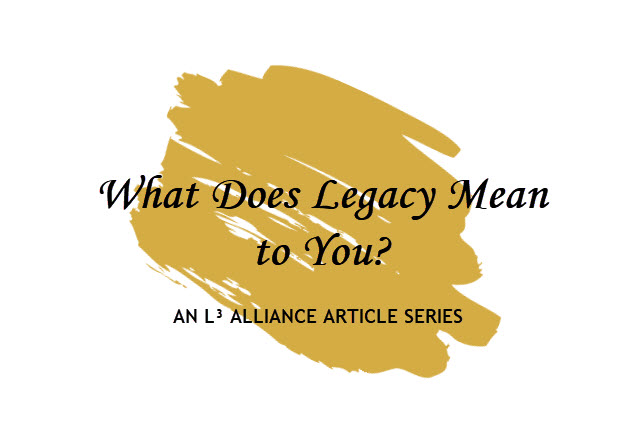The L³ Alliance (Lifestyle, Legacy, and Leading by example) is the women’s group for the Wells International Foundation. Founder & CEO, Dr. Monique Y. Wells, believes it is important for high-achieving professional women to keep the idea of legacy “top of mind” and to observe how doing so influences their impact as leaders. She invites women leaders to reflect on this concept by contributing to the What Does Legacy Mean to You? article series.
Bimpe Nkontchou is passionate about delivering world class legal and advisory services to a wide range of clients who are interested in doing business in or with Africa. Her focus is providing wealth management advice to African entrepreneurs and families, and her work in family governance, business consultancy, financial education, estate and succession planning, and philanthropy and foundation management are a perfect framework for this interview on leadership and legacy.
L³ Alliance: What does the word “legacy” mean to you?
BK: The dictionary definition of legacy refers to ‘something passed on from one generation to another.’ However, the first thought that comes to my mind when I hear the word ‘legacy’ is of the ‘reputation’ that is passed down within a family in the context of behaviour, character, and impact on the community. For example, my late father left a lasting legacy of integrity, intellectual brilliance, and leadership in the medical profession in Nigeria and the rest of the African continent.
L³ Alliance: How does it apply to you right now as a woman who is a leader in your field?
BK: As a woman who continuously strives for excellence as a leader in the field of wealth management for African families, I am conscious of being a role model and an influential catalyst for my clients who trust me, for other women and men (whether in the same profession or not), and for my children. I am conscious that I am already constructing my legacy and therefore acutely aware of my responsibility to those who are and will be impacted by it long after I’m gone.
My legacy is determined by my actions, my utterances, and my relationships, as all these combined tell the ‘story’ of who I am and the nature of the impact I have on others. Whilst I am alive or in a particular position, my reputation is evolving, but once I depart or cease to be, it becomes my legacy.

Each day counts and so I focus my energy on the impact that I can have in the areas I know how to. For example, I am particularly focused on financial awareness and economic empowerment for black and ethnic minority communities in the UK and on the African continent, and I’m working towards democratising wealth management services for all through the use of fin-tech and a recently established digital investment platform called Wealth8. I hope this will be my legacy (though for the meantime it is evolving as a reputation).
I am also passionate about advocating for philanthropy and patronage in the African art ecosystem to support and encourage the emerging artists on the continent. It is my hope that I can build a lasting positive legacy in these areas, if my actions, utterances, and relationships are focused, consistent and impactful.
L³ Alliance: Describe what the relationship is between leadership and legacy.
BK: There is a strong correlation between leadership and legacy because the mere fact of leadership implies influence, which provides the building blocks of legacy. The legacy of a leader is borne out of the impact or influence they may have on those that they are leading. A leader’s legacy is their impact on an organisation, a community, or a country that is felt long after the leader’s departure (or death) – and it is not always a positive one.
A good leader feels responsible not only for the impact of their leadership whilst they are in the position, but is acutely aware that their legacy is just as important in determining the future of the people being led.
L³ Alliance: How can keeping legacy “top of mind” help you be a better leader?
BK: Good leadership ultimately results in a good legacy when the leader cares deeply about the long term effects of their actions. I am conscious of the impact that my conduct, utterances, and relationships are having on those within my sphere of influence – i.e. professionally, socially, and in my family. This impact is part of my reputation, which becomes my legacy over time.
I believe that my legacy as a mother, as a professional adviser and as a change-maker in the wealth management and art patronage space all depend on my ability to focus on the interests of those that I lead or influence and to be a positive and lasting influence for them.



